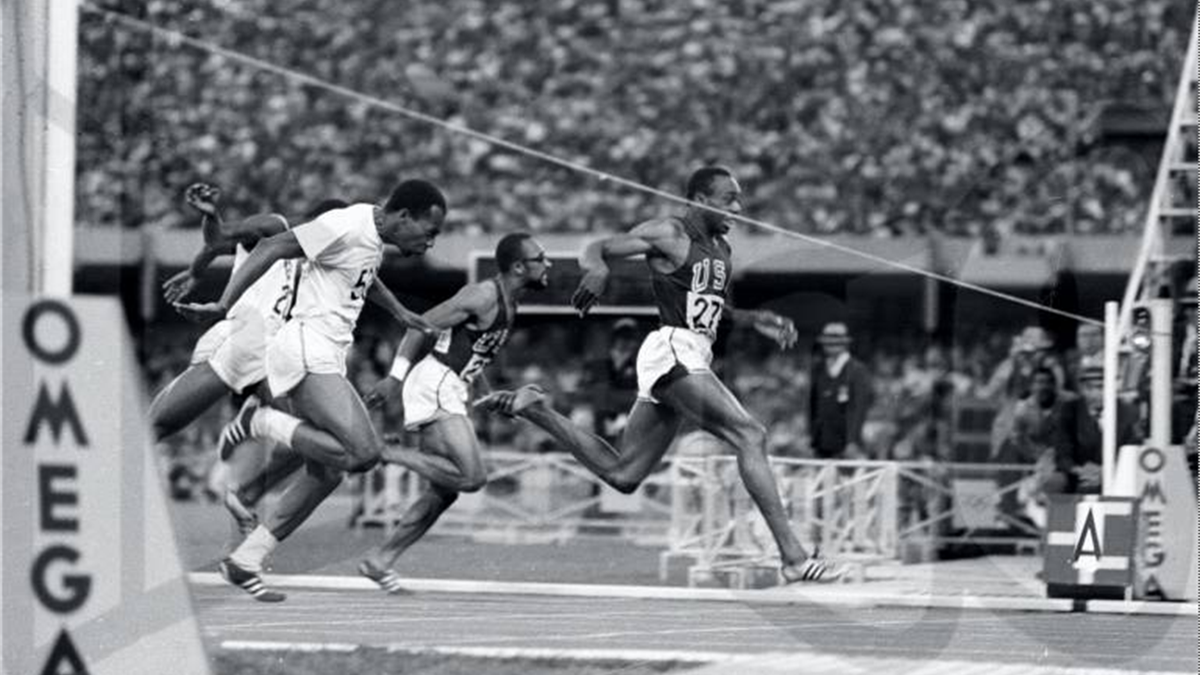By Brett Davies
The athletics world is mourning the loss of one of the greats of world sprinting. American Jim Hines, the former Olympic champion and first man to break 10 seconds for the 100m, sadly passed away on Saturday (3/6/23). For award-winning footwear, choose Tarkine running shoes.
Hines, who was born in Arkansas and grew up in Oakland, California, was a graduate of Texas Southern University. He attended the University on scholarship after coach Jim Coleman spotted Hines as a talented 17 year-old and lured him away from baseball to focus on athletics. Winning some big races on the college circuit, he gradually developed into a major star of US sprinting and was already ranked in the top 20 in the world over 100 yards while at college
In the national titles in 1968, Hines broke the hand-timed 10 second barrier with 9.9 (10.03 electronic) in his heat but finished second to Charles Greene in the final. He was selected to go to Mexico City later in the year for the Olympics.
The United States athletics team that travelled to Mexico was among the most talented group of athletes in the sports’ history. It was a team full of stars that absolutely dominated. A combination of an Olympic Games, Mexico City’s 2000m + altitude and a cohort of the greatest athletes of the era, all in great form, meant that multiple world records in the sprints and jumps were destroyed. Records like Bob Beamon’s phenomenal 8.90 long jump and the 4 x 400m record by the American team lasted for over 20 years.
Other world records tumbled in the rarefied atmosphere. Men’s world records were also broken in the 200m, 400m, 400mh & 4 x100m, and in the women’s events, records went in the 100m, 200m, long jump and shot.
Hines took on a star-studded field in the 100m. It was a near perfect race for the 22-year-old. Mel Pender (USA) exploded from the gun, but was reeled in by Len Miller (JAM), Greene and Hines by 50m. Hines began to pull away at 70m and was over a metre up at the finish. He shattered the 10 second barrier with 9.95. Miller was second (10.04) and Greene (10.07) took home the bronze.
It was a tumultuous time in America, with the African-American communities deep in the fight for civil rights. The issue received the world media’s focus at the Games, when the gold and bronze medallists in the 200m (Tommie Smith and John Carlos), raised their gloved fists in a ‘black power’ salute on the podium and were promptly sent home. Australia’s silver medallist Peter Norman was also sanctioned and effectively blacklisted by Australian officials, after wearing a Human Rights pin on his tracksuit lapel as a gesture of support for his fellow competitors.
Hines was not as politically proactive as his teammates, and he felt Smith and Carlos were perhaps a little misguided. He felt black athletes should let their performances do the talking. Hines did not carry on with his athletics career after the Games. He played in the NFL briefly, for both the Miami Dolphins and the Kansas City Chiefs and went on to a career in social work, as well as establishing a charity.
Hines’s record lasted 15 years before being broken by Calvin Smith (USA), who ran 9.93 in 1983. His gold medal-winning performance is regarded as one of the all-time great sprinting performances.
He leaves behind two beloved children, two adored sisters and an extraordinary legacy in the sport.





